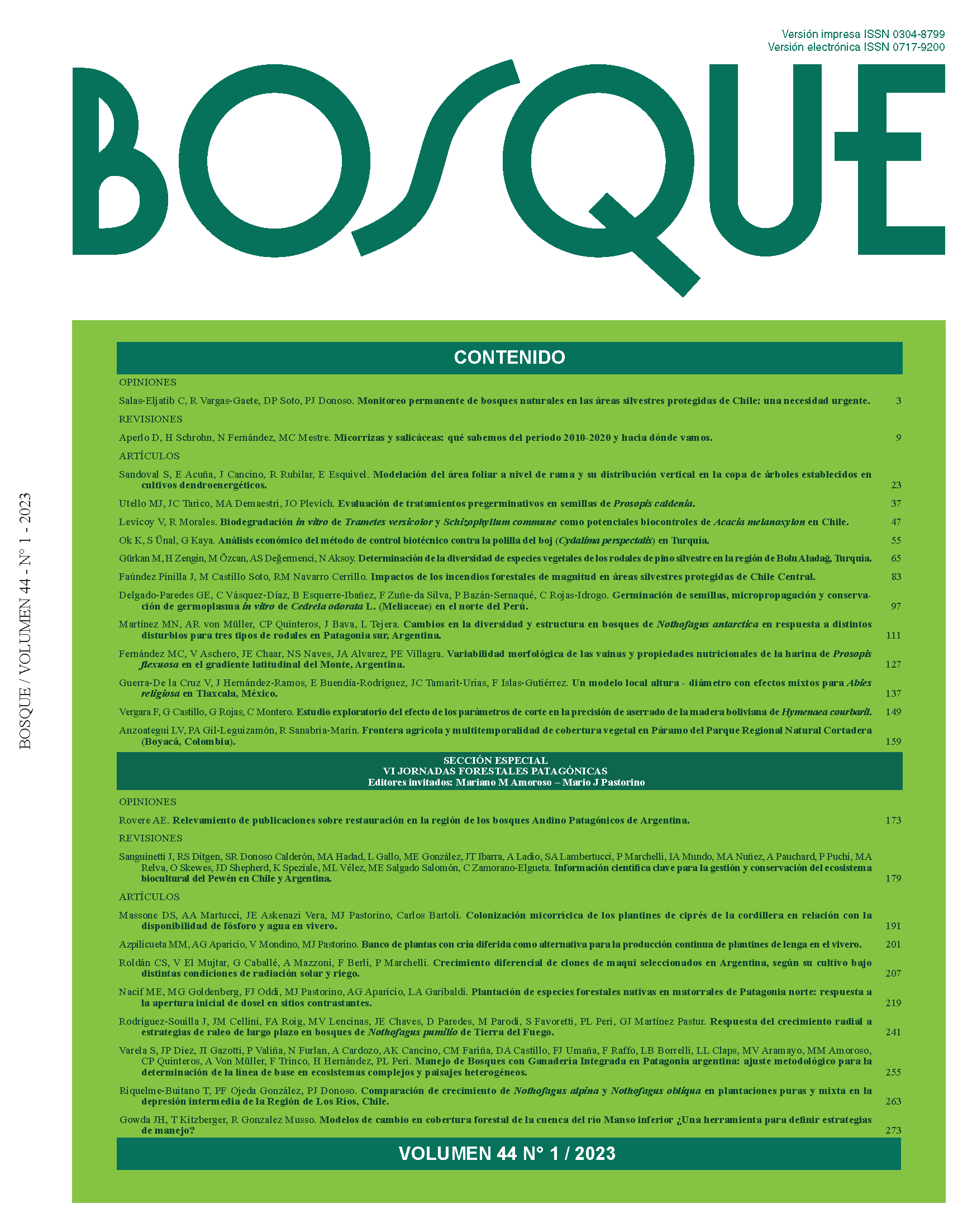In vitro biodegradation of Trametes versicolor and Schizophyllum commune as potential biocontrols for Acacia melanoxylon in Chile
Main Article Content
Abstract
Acacia melanoxylon is an exotic and invasive species in Chile, one that is difficult to control by cutting trees and applying chemical products. This has made its management for ecological restoration difficult, signifying the need to investigate alternative, effective and environmentally friendly methods. The objective of this study was to evaluate the degree of in vitro biodeterioration of A. melanoxylon wood with Trametes versicolor and Schizophyllum commune fungus, collected from naturally parasitized stumps in the field. Kinetic growth studies and biodeterioration tests on A. melanoxylon wood were carried out over four months in the laboratory. Trametes versicolor had the highest colony development at eight days on 2 % malt agar and the highest significance of biodeterioration with 25.3 % in average loss of wood mass, with abundant colonization and aggressiveness, compared to 6.1 % biodeterioration by S. commune. However, the pathogenicity of S. commune in stumps in the field must be evaluated before this fungus can be ruled out as a biocontrol. These results correspond to the first studies regarding the in vitro evaluation of the biodegradation capacity of xylophagous fungi in the search for potential biocontrols for A. melanoxylon that contribute to the success of ecological restoration in forests.

